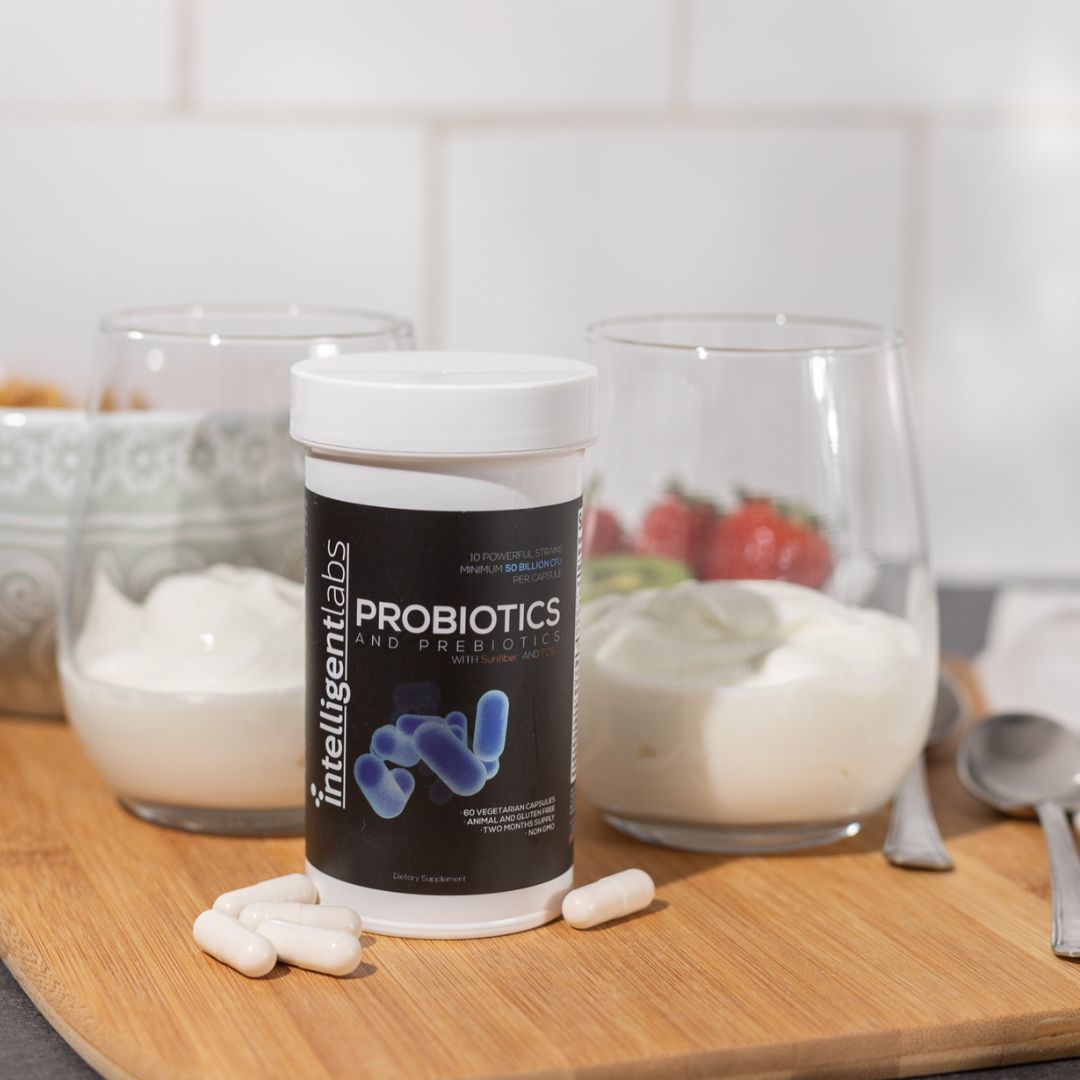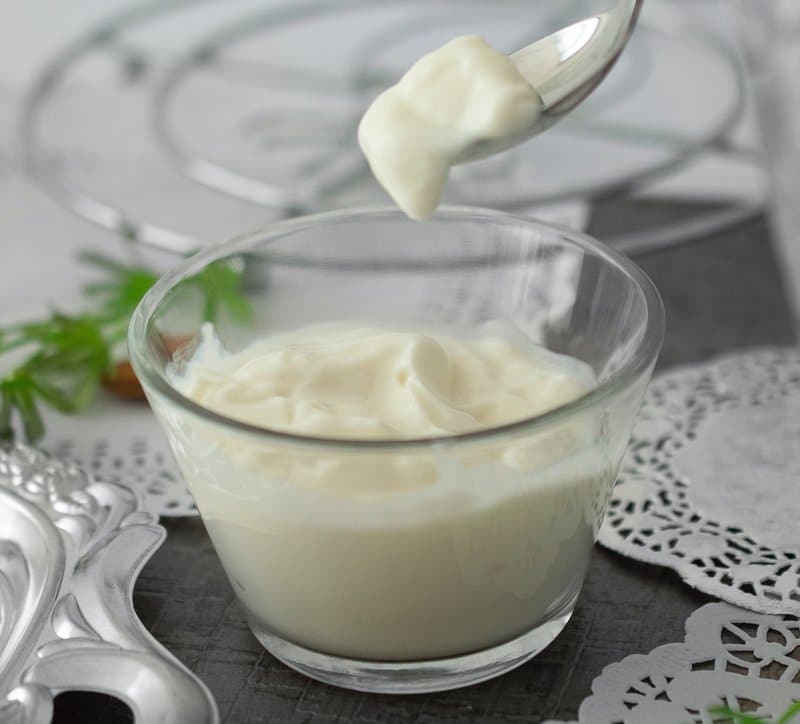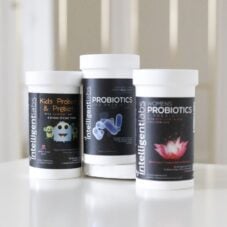Yogurt really seems like the perfect snack. It’s tasty, healthy, and you can use it in so many ways. If you’re watching your weight, yogurt is a great choice because it’s low in calories but keeps you feeling full. Plus, it’s loaded with protein, calcium, and potassium, and it gives you a dose of probiotics for your gut.
But are probiotics in yogurt as amazing as they sound? Is yogurt really the top source of probiotics? And how do you find the best probiotic yogurt? Well, I won’t keep you waiting. Scroll down to find out!
Table of Contents
Do All Yogurts Have Probiotics?
Let’s clear this up. All yogurt starts out with live cultures, the friendly bacteria that turn plain milk into yogurt. Without these, you’re left with spoiled milk, not that creamy snack you love.
But here’s the catch: not every yogurt on the shelf is a true probiotic yogurt. Some brands heat-treat their yogurt after it’s made. This process makes it last longer but also wipes out the good bacteria.
If you want the gut-friendly benefits, check the label for “live and active cultures.” If it’s not there, those yogurt probiotics probably didn’t make it to your spoon.
Where Do the Probiotics in Yogurt Come From?
The most common ‘starter’ cultures are lactic acid-producing bacteria called Lactobacillus bulgaricus and Streptococcus thermophilus. They’re added to milk, and after several hours of fermentation at a certain temperature, yogurt is made.
But that’s not all. Many brands boost their yogurts with extra probiotics, like Lactobacillus acidophilus, Lactobacillus casei, and various Bifidobacterium strains. Their names might sound like tongue twisters, but these bacteria are great for your gut.
Bottom line? The more yogurt probiotics in your yogurt, the better it is for your digestion.
The Truth About Probiotics: Not All Yogurts Are Equal
Walk down the yogurt aisle and you’ll see a rainbow of choices, but not every tub is equal when it comes to probiotics or nutrition.
Here are some of the most nutritious probiotic-containing yogurts:

Greek yogurt is a top pick if you’re on the hunt for yogurt with lots of probiotics. It’s thicker and creamier because it’s strained to remove whey, which also doubles its protein and lowers the carbs. This makes Greek yogurt great for keto and high-protein diets. Many Greek yogurts also come with added probiotics, making them extra good for your gut. Plus, they stand up well in cooking and baking.
Goat milk yogurt is a solid alternative if you’re allergic to cow’s milk. It offers more protein, calcium, and potassium than standard yogurt, but the taste can be a bit strong if you’re new to it. You can even find or make Greek-style goat milk yogurt.
Sheep milk yogurt is perfect for people who are lactose intolerant or need easier digestion. It’s lower in lactose, has smaller fat globules, and is loaded with protein, vitamins, and minerals. The flavor is milder than goat milk yogurt and it’s usually easier on the stomach.
Vegan yogurt gives you options made from almond, coconut, soy, and other plant milks. These can be a good choice for dairy-free diets. But always check the label for “live cultures” and avoid options that are pasteurized after production, since heat kills off probiotics.
The takeaway?
If you want the most nutritious probiotic yogurt, skip the dessert-style or high-sugar versions. Instead, go for yogurts with probiotics that clearly say they have live and active cultures, and pick the type that matches your health needs.
So, Is Yogurt The Best Probiotic Source In The World?
Probiotic yogurt is a great option for everyday gut support, but it might not be enough for everyone.
Most yogurts contain just a few probiotic strains, and the amounts can vary a lot between products. If you’re looking for consistent, higher-dose support or need specific strains for digestive, immune, or skin health, probiotic supplements are often the better choice.
So if you’re comparing a probiotic pill vs yogurt or wondering about probiotic supplements vs yogurt, it really comes down to your goals. Yogurt is a good starting point. But for more targeted benefits, a supplement can help fill in the gaps.
Here’s how our Intelligent Labs Probiotics stacks up against regular yogurt:
| Regular Probiotic Yogurt | Intelligent Labs Probiotics | |
 |  | |
| No. of probiotic strains | Depends on the brand, but sometimes 2, 4, or more strains | 10 strains sourced through DuPont Danisco |
| No. of colony forming units (CFU) | Around 1 billion CFU | Minimum of 50 billion CFU at expiry date (we fill each capsule with 150 billion CFU) |
| Does it include prebiotics? | No prebiotics added | Yes, prebiotics (or fiber) feed the probiotics inside the capsule so they don’t die off |
| Sugar | Yes, many commercial yogurts have added sugar | No sugar added |
| Shelf life | 1-2 weeks (max of 1 month) | Two years |
And the winner is?
Supplements give you better value and more reliable gut support than regular yogurt. Yogurt is tasty, but if you’re serious about gut health, supplements make it easy to get real results.
Every bottle of our Intelligent Labs Probiotics gives you 60 capsules, so just one a day lasts a full two months! For extra synbiotic benefits, we add 2 types of fiber to every formula. We also use patented probiotic strains from DuPont Danisco and Lallemand, and every batch is third-party tested for quality and safety.

FAQs About Probiotic Yogurts
Is probiotic yogurt safe during pregnancy and nursing?
Yes, it’s safe and can be especially helpful for extra calcium and protein. Probiotics may even help reduce some pregnancy-related risks. Here’s an in-depth blog post on probiotics and breastfeeding.
Can people with lactose intolerance eat yogurt?
Often, yes. Non-dairy yogurts and sheep’s milk yogurt are good choices. Always check the label to make sure it fits your needs.
How do I know what kind of yogurt has the most probiotics?
Look for yogurts with probiotics that clearly state “live and active cultures” and check for added probiotic strains on the label. Greek yogurt and certain organic brands are good places to start.
Can probiotic yogurt cause digestive issues?
Probiotics normally don’t cause these issues, but some people may experience these side effects. It’s actually a sign that the probiotics are working, so it’s generally nothing to be worried about. Alternatively, if you’re sensitive to an ingredient in the yogurt itself, you may also experience these symptoms.
Is yogurt good for dogs?
Dogs can also benefit from probiotic yogurt. But take note, most dogs are actually lactose-intolerant. So, choose something that contains low lactose levels.
Also, choose plain low-fat or non-fat yogurt for your dog. Full-fat yogurt can lead to stomach upset, or even pancreatitis, a serious and fatal illness. Start by giving your dog a small amount and see how he reacts.
Moreover, avoid flavored yogurts because they are packed with sugar. Products that contain Xylitol (an artificial sweetener) are also a big no-no, as this ingredient is toxic to dogs.
How often should you consume probiotic yogurt?
Daily is best if you want the benefits. One cup a day is plenty if you’re eating other dairy foods too. Remember, probiotic supplements offer more strains and a higher dose if you want extra support. Click here to find out when’s the best time to take your probiotic supplement.
Conclusion
Not all yogurts are created equal when it comes to probiotics. While probiotic yogurt is tasty and nutritious, supplements give you more strains, higher doses, and consistent support.
If you want the best of both worlds, enjoy probiotic yogurt as part of your daily routine and add a quality probiotic supplement for extra gut health power (here’s how to choose the best probiotics). Your gut will thank you!
Have questions or want to share your experience? Drop a comment below or sign up for our newsletter for more science-backed tips and special offers.





